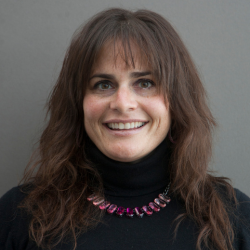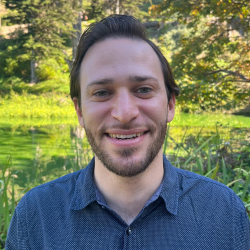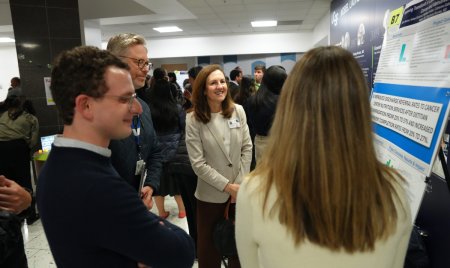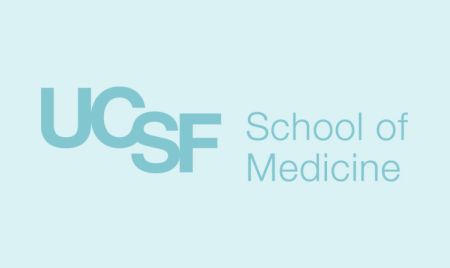Building Community, Trust, and Connection Through Appreciation: UCSF School of Medicine Diversity Matters Orientation

This year marks the 10-year anniversary of the Diversity Matters Orientation (DMO) portion of the UCSF School of Medicine medical student orientation. DMO is a two-day immersive experience for medical students during their first week of medical school. Through common readings, small group facilitated discussions, and guest speakers—including advanced medical students, faculty, and a patient—DMO develops the lifelong practice of strengthening the communication skills needed to build trust and community and connect across differences.
DMO celebrates the stories and successes of individuals, as students listen to and affirm each other, build relationships and communities across differences, and mitigate interpersonal assumptions and biases.
Denise Davis, MD, Professor of Medicine, who has guided DMO for the last 10 years, said, “Better communication means better caring and improved carefulness, which means safety in clinical medicine. Yes, we need to be skillful in terms of biomedical knowledge, but we also need to be skillful to engage in meaningful conversations that help us empathize and connect fully to the person who is in the patient role.”
Protest as Catalyst
On December 10, 2014, the UCSF White Coats for Black Lives Die-In was held, with over 100 interprofessional learners lying for 49 minutes outside of the library on the UCSF Parnassus Heights campus to protest the grand jury decisions to not indict white police officers who were involved in the deaths of two unarmed Black men – Michael Brown in Ferguson, Mo., and Eric Garner in New York City. The demonstration sparked a movement of medical students across the country who, wearing their white coats, commemorated the loss of life and called for institutional change.
At UCSF, the die-in catalyzed the School of Medicine to focus on health disparities, racism, and oppression in new ways throughout the School’s curriculum. Catherine Lucey, MD, the School of Medicine’s Vice Dean for Education at the time, put a call out to develop an orientation activity that would help recognize and start dismantling institutional and interpersonal racism.
An Evolution

Denise Davis, MD, Professor of Medicine, and DoQuyen Tran-Taylor, MEd, Director of the School of Medicine Student Experience Team, worked together to develop a new program in just eight weeks. In 2015, the program was titled Diversity, Inclusion, Bias, and Inequity (DIBI) and was facilitated by interprofessional faculty and staff with a high level of expertise in diversity, equity, and inclusion facilitation.
In the second year, DIBI was renamed Differences Matter Orientation to connect with the new School of Medicine Differences Matter Initiative. That same year, facilitation for the small group discussions was assigned to the Bridges Curriculum medical student coaches. Each medical student coach works with five to six medical students throughout the entire four years of the curriculum, and DMO is the first time these students and coaches meet and get to know each other.
During the COVID-19 pandemic, DMO was held via Zoom in both 2020 and 2021. Unsurprisingly, these virtual sessions were not as satisfying an experience for facilitators or students. DMO reconvened in person in 2022, and the online sessions clarified how important body language and other small clues are to building community and trust.
In 2022, due to student requests for increasing expertise in equity, Reverend Dr. Jamie Washington, MDiv, PhD, a nationally recognized expert on social justice and equity worked with the Differences Matter Orientation team to deepen the content around equity and bias. Dr. Washington also guided the team in threading a theme of equity throughout the entire Launch, the first in-person week of medical school.
Recently, the name was changed from Differences Matter Orientation to Diversity Matters Orientation to reflect student feedback that the program should seek to focus less on differences and more on people’s personal stories and appreciative inquiry, the act of inviting others to speak from their assets, not their deficiencies.
For the past two years, select staff and faculty members who are involved in the Foundations 1 and Foundations 2 portions of the Bridges Curriculum have been invited to participate in DMO. These campus leaders connect as a small group led by Denise Davis and engage in the same curriculum and activities during the two-day intensive. This year, faculty and staff from UCSF and UCSF’s regional campus, UCSF Fresno, participated in this community-building experience.
Reflecting on the Power of DMO


Ernesto Rojas, a Medical Scientist Training Program (MSTP) student, shared the impact of DMO at the anniversary event at Mission Bay. He said, “DMO shows medical students in their earliest days that in health care, we’re all here for a shared goal, to serve our communities. And in DMO, we start to build that community.” He continued, “Whether I’m speaking to a loved one, a patient, a provider, or a colleague, DMO has instilled in me the power of communication to bring equity to relationships.”
Dina Wallin, MD, Associate Professor, Department of Emergency Medicine, Division of Pediatric Emergency Medicine, carries the lessons of DMO into her work as a medical student coach. She said, “In addition to explicitly naming the skillsets learned during DMO and applying these to true or standardized patient encounters with students, I practice appreciative inquiry and listening to understand when meeting with students and coaching them through challenges they face.”
Attendees at the 10-Year Anniversary Celebration on September 27—including faculty, staff, medical students, and a few community members—were led in facilitated conversations based on the practices shared during DMO.

Reflecting on the experience, Daniel Luis Zager, MS2, said, “Now I see that vulnerability is not only safe in our ranks as professionals but encouraged. By showing vulnerability in professional settings, we break down barriers to communication and allow relationships built on openness. Going forward, I will be careful and intentional with the ways I choose to share parts of myself––if I feel that an interaction or relationship could be enhanced by sharing part of my story, I will not hesitate to do so.”









